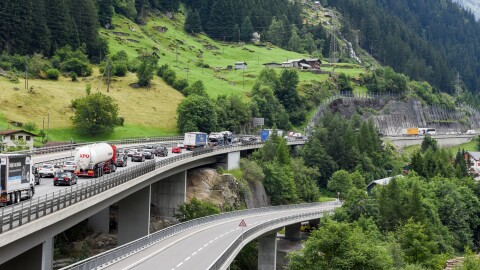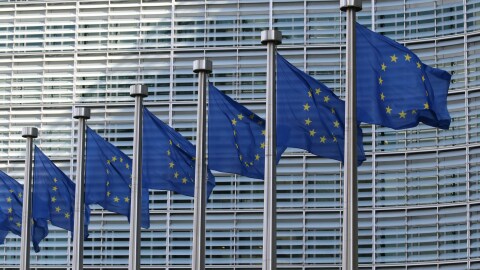As Belgium takes the Presidency of the Council of the European Union, it does so at a time when many eyes are on the political direction the EU will take over the next five years. The Belgian Government can play a unique role in shaping how the EU can best serve citizens, the environment, and businesses over the next five years. Although there isn’t long before the European Parliamentary elections in June, the Belgian Government’s ambitious programme entitled “Protect, strengthen, prepare”, aimed at supporting a seamless transition to the next institutional cycle, is crucial for continuity, whilst also being open to innovative policy ideas on the horizon. At Amazon, we are following this work closely, and engaging where we can to ensure that the next five years delivers a sustainable, frictionless, and true Single Market for European citizens and businesses alike.
Delivering a strong, prosperous, and green Single Market
As a long-term investor in Europe, Amazon views the Single Market as one of the most important enablers of European small and medium-sized enterprises (SMEs). In 2022, more than 125,000 EU-based SMEs sold products in Amazon stores. More than 70% sold across borders in the EU, generating more than €9.8 billion in intra-EU sales in 2022 alone. 1,200 Belgian SMEs are selling on Amazon, and we are proud to be one of the ways to help them sell across borders. Organic food and drink company Gimber is one of the Belgian SMEs benefitting from the Single Market, with Amazon supporting them to reach a broader consumer base.
A properly functioning Single Market has the potential to deliver the much sought-after EU ‘competitiveness’ on the global stage, and it seems clear that the Belgian Government stands ready to drive a debate on how that can be achieved over the next five years. One opportunity available to the Belgian Government is working with the former Italian Prime Minister, Enrico Letta, on his report about the future of the Single Market, expected to be presented at the April European Council. At Amazon we hope it will recognise that a sustainable and scalable green transition in the EU is dependent on a barrier-free Single Market fully accessible as a ‘home market’ for all EU businesses and citizens.
There are many areas which the Belgian Government can focus on in the Presidency term to help strengthen the Single Market and ensure it's 'green', including:
- Reducing red tape for small businesses through more effective customs procedures;
- Introducing clear and proportionate product policies, which build on existing rules, delivering for both consumers and sellers;
- Promoting SME innovation through the “think small first” principle;
- Addressing obstacles that limit access to the EU cloud market or hinder cross-border provision of cloud services, enabling access to the newest technologies for business;
- Accelerating the green transition by removing barriers for cross-border trade in sustainable goods and services;
- Removing administrative barriers to the circular economy by simplifying Extended Producer Responsibility (EPR) recycling fees when trading cross-border in the EU.
- Accelerating the transition of the transportation sector by facilitating multimodal transport and deploying next gen technologies at scale through investments in charging and refuelling networks.
For more of our ideas for a strong, prosperous and green Single Market, you can read our downloadable flyer here.
An open and competitive EU
The Belgian Presidency will continue the work started under the Spanish Presidency, with consideration for the "Granada Declaration", which calls for an open approach to the EU in a global context. In this Declaration, European Heads of State call for a more cohesive, innovation-driven and interconnected Single Market, which will play an essential role in increasing Europe’s resilience and competitiveness - but they also ask that the EU remains open to the world. As stated in a preceding joint declaration signed by Belgium and four other like-minded EU nations, “a geopolitically fragmented world demands a strong and resilient Union that is able to safeguard and promote its core interests, strive for a rules-based, open and interconnected economy and champion multilateralism and international cooperation. The concept of open strategic autonomy was introduced to achieve just that."
The concept of an open and competitive EU will continue to be debated under the Belgian Presidency, but it is crucial that these discussions recognise the importance of global trade, in particular for nations such as Belgium. With an export to GDP ratio of 95.7% in 2022, Belgium is a trade champion because of the ability of its businesses to trade internationally. Belgium is well placed to further steer discussions at EU level, and could focus on the fact that Europe’s economy does best when the EU is creating opportunity, building resilience, and increasing security in tandem with its international partners.
We look forward to seeing how the Belgian Presidency sets up the EU for long-term success, and enthusiastically support its drive to put the Single Market and open European trade at the heart of discussions.













